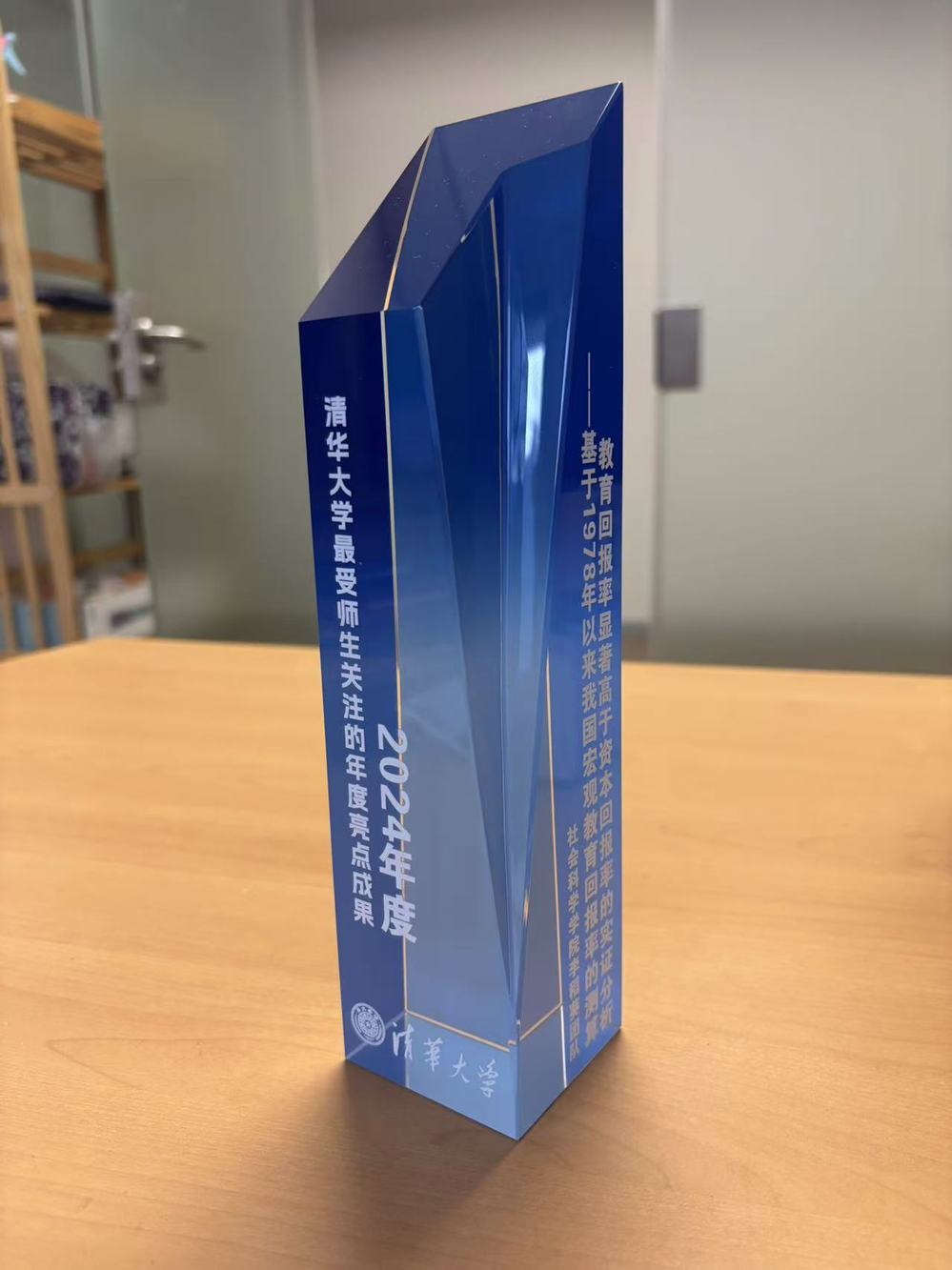Research results from David Daokui Li's team selected as one of the top ten highlighted studies most well-received among students and faculty at Tsinghua University in 2024
On January 2, 2025, the research results produced by David Daokui Li's team (Wu Shuyu, David Daokui Li, and Li Ke’aobo) at the Academic Center for Chinese Economic Practice and Thinking (ACCEPT) under Tsinghua University’s School of Social Sciences, entitled “An Empirical Analysis of the Fact That the Returns to Education Are Significantly Higher Than the Return of Capital: Based on the Estimation of the Macroeconomic Returns to Education in China Since 1978 was selected to be awarded as one of the highlighted annual academic achievements most well-received among students and faculty at Tsinghua University in 2024.
This award aims to support the role of institutions of higher learning as the principal driving force for conducting basic research and the main base for making significant breakthroughs in scientific research, while spurring on the vitality and self-confidence of students and faculty to continue bringing forth new and innovative ideas, fostering an academic environment conducive to this end, in addition to elevating the overall influence of academic research. Tsinghua ACCEPT’s research paper was selected for the award after successfully passing through multiple rounds, including the initial recommendation of Tsinghua University’s schools and departments, further evaluation by panelists on the university’s Academic Committee, and finally online voting among students and faculty members.
The research institute's academic article addresses a major societal concern as to where China’s government ought to best direct its public investment at a time when infrastructure investment has largely become saturated and the return on investments into physical capital are continually declining. By adopting an innovative analytical approach, the paper calculated the long-term returns to macroeconomic growth associated with China's investments into education. The study found that the macroeconomic rate of return on educational investment in China amounts to more than 20% across all levels of education, far exceeding the current rate of return on physical capital at about 5%. These empirical results indicate that China should continue to increase its investment into education, while simultaneously implying that society should move to reduce a portion of the inefficient investment going into physical capital and instead promote the redirection of public investment into the education sector, with this educational investment ultimately being better able to contribute to human development, economic growth and social progress. These research results make an outstanding contribution not only in terms of theory, but also serve to provide an important reference point for relevant government institutions seeking practical policy advice for future decision-making, advice which can play an instrumental part in furthering the interests of the broader society.





